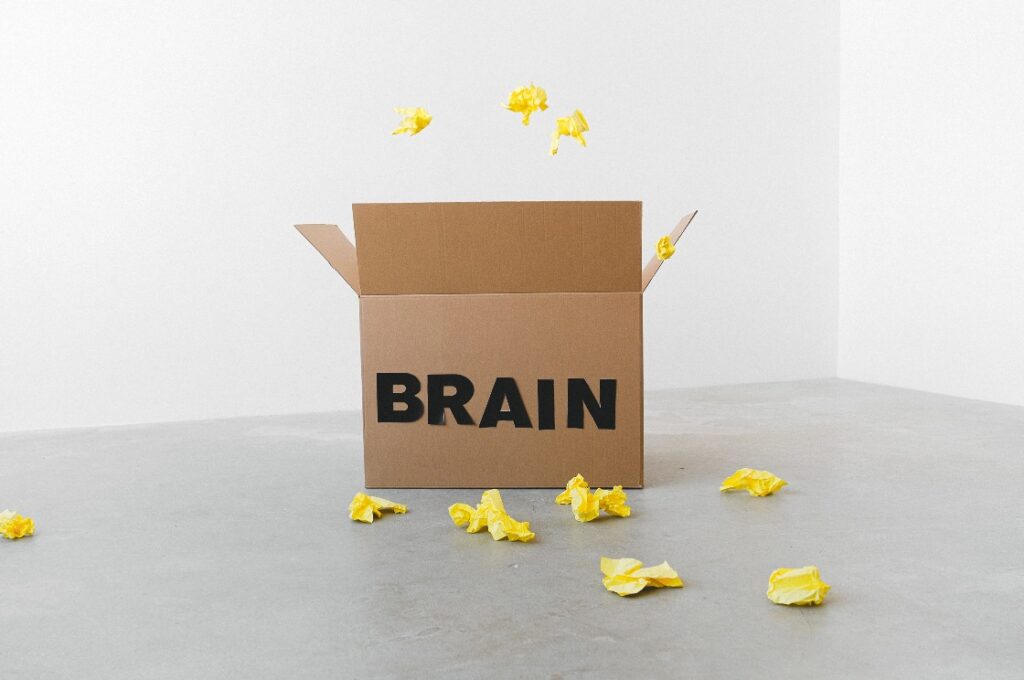Have you ever wondered why signs of anxiety exists? Why do our brains make us feel so unsafe for seemingly no reason? If you look back at the evolution of humankind, you may find your answer. It may even help you accept your anxiety for what it is, your brain protecting you from psychological danger.
The History of Humans
Before advanced technology, humans had very different daily stressors. They had to worry every day about shelter, protection from predators, and food. If they didn’t grind for resources, they wouldn’t survive. When we think about it, those are very legitimate fears. It might even feel intimidating to think about having to worry about that constantly.
When humans encountered harsh weather conditions, they had to find strange places to stay safe. They had to take mental notes of what worked and what didn’t so they could prepare better for the next time. The same happened when facing predators. If a human had to fight off an animal and they survived, it was helpful for them to understand what worked and what failed so that next time, they would be better prepared to fight again.
These patterns of thinking led to the growth in technology, such as the progression of shelter and weaponry. But how does this relate to our brains and anxiety today? We don’t have to worry about finding shelter, food, and protection every day.
Why Anxiety Exists Today
Our brains are wired to worry about our survival. However, because we don’t have a constant worry about our physical safety, our brains compensate by worrying about our psychological safety.
In the stone age, someone may be wary of entering a cave due to the dangerous predators that may be lurking in there; bears, wolves, snakes, and more. Today, we may be wary or anxious about going to work because our boss may be upset with us, we may encounter an angry consumer, or there may be a task we don’t feel confident doing. Our brains create this anxiety in our minds to avoid uncomfortable situations. There may not be a danger to our lives, but there may be a danger to our mental well-being.
Anxiety and the Need to Fit In
One of the most obvious examples of the brain’s adaptation to worry about psychological safety versus physical safety is the need to fit in. In the past, if you didn’t fit in with your group or tribe, you were cast out. Being cast out of your group posed a legitimate threat to your survival. It was much more difficult, nearly impossible, to survive alone in the wild.
One way to look at it is that our brains have a hard time accepting that not fitting in isn’t a danger to our physical safety. We feel the need to fit in on social media, in our family, in friend groups, and much more. A lot of us tend to fear being alone and feel like we can’t make it on our own. Some of us feel anxious when we think of not fitting in. The evolution of humankind is the cause of that. There is nothing wrong with the fear of not fitting in.
Coping With Physical Danger vs. Psychological Danger
It is much easier to cope with physical danger versus psychological danger. In the stone age, physical danger came with a clear solution or solutions. When facing a bear, your tribe had two options, run or fight. It can be a lot harder to find solutions to anxiety or psychological danger. For example, if you feel anxious talking to large groups of people, and you have a speech coming up, you can’t run from it. How do you get through the anxiety you feel when making a speech?
One way to cope with psychological danger, like anxiety, is to talk about it. There wasn’t much talking needed when humans had to fight for their lives in the Stone Age. It was either fight or die. Sometimes anxiety can feel a lot like fight or die, but those are not the two choices you have. You can fight, yes, but you can also talk. Because your suffering is psychological, there are people that can talk it through with you to make it more bearable. You can discuss strategies to ease your anxiety.
Reminding yourself that your anxiety is your brain protecting you is one way to find ease in accepting your anxiety. Making a habit of accepting your anxiety when it comes makes coping with it more bearable and less intimidating. You should not feel ashamed about having anxiety. Just because your anxiety isn’t due to physical danger doesn’t mean it is any less valid. Your anxiety and your fears are valid no matter what.
Mindfuli understands how frustrating experiencing anxiety can be. Remind yourself that your anxiety is not abnormal. Anxiety is simply your brain’s way of trying to keep you safe from harm. Just because your fears may not include basic survival, they are still legitimate. Understanding why your brain creates anxiety from a historical point of view is one way to cope with the anxiety you experience. It can be uncomfortable to live with, but that’s why therapy is a great option. Talking to someone about your anxiety can help you accept that it’s there and learn how to cope with it. Call us at (866) 973-4415 to find a therapist or support group.
